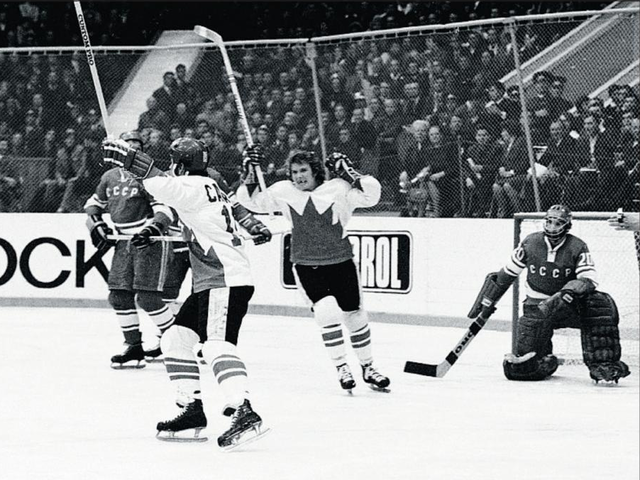Last night, I watched the 4 Nations Final with 150 of my fellow Canadians at a sports bar in Ottawa. I may not be the biggest hockey fan, as due to my family’s financial constraints, I could not play organized hockey. That said, when Canada’s best laces up against America’s best, I feel more pride and emotional investment than ever.
Connor McDavid scored the winning goal in overtime, reminding me of the Golden Goal Sidney Crosby scored in the 2010 Winter Olympics. There was something about this moment that stood above the 2010 goal. In the past, our hockey rivalry with the U.S. was about bragging rights. But now, with threats of tariffs and talk of Canada as a ’51st state,’ the stakes feel higher. This game wasn’t just about winning. It was about asserting our national identity.

An Angus Reid poll revealed a 10% increase in Canadian pride in February. It was clear that Canada was becoming increasingly divided before the USA imposed itself on Canadian sovereignty. On Thursday night, Canada was more unified than ever. Chants of “Canada, Canada, Canada” rang loudly throughout sports bars nationwide. This is what we needed. A Win for Canada.
In 1972, the famous Summit series had a hockey game surrounded by political tension. At the height of the Cold War, the democratic Canadians faced off against the communist USSR. The Canadians were highly favoured going into the series but suffered a first-game embarrassment, losing 7-3 in Montreal. The Canadians managed to come back in the series and win game 8, with Paul Henderson putting the puck behind Soviet Goalie Vladislav Tretiak with 34 seconds in the game.
While the Cold War loomed over 1972, today’s economic tensions with the U.S. have made this victory feel just as symbolic for a new generation of Canadians. Though the current U.S. president can try to bully us around, we will never be bullied on the ice.

This victory was about more than hockey. It reflected a growing movement of Canadians pushing back against economic dependence on the U.S. In bars and grocery stores alike, a shift is happening. I asked my local LCBO cashier, “Have you seen people buy more Canadian products as substitutes for American-made ones?” He replied that there has been a significant shift. Last week, I got a text from my mother-in-law saying, “It took a bit more time, but I went to Costco and am happy to say that all my groceries were not from the USA.” According to Angus Reid, 85% of Canadians said they have or plan to replace U.S. products.
The current threat from Donald Trump has been a wake-up call for Canada. We need to be more self-reliant and find other trade partners. It would be foolish for us to think we can divest ourselves entirely from the USA, but we can take major steps in improving self-reliance. Canada’s response must be bold. We need to prioritize interprovincial trade and energy independence, ensuring our economy is as resilient as our hockey team.
Just as Keynesian economics advocates increased government spending during economic downturns, as seen in responses to the 2008 housing crisis and the COVID-19 pandemic, our government should adopt a similar countercyclical approach to regulation. Canada must act swiftly to streamline permitting, accelerate approval processes for businesses and infrastructure, and implement temporary deregulations in key industries such as oil and gas. This strategy will stimulate investment, strengthen Canada’s economy, and foster greater national self-reliance.
Connor McDavid’s goal solidified that hockey is our game. Now, we must take this momentum and show the rest of the world that Canada will not be bullied on or off the ice.

Leave a Reply